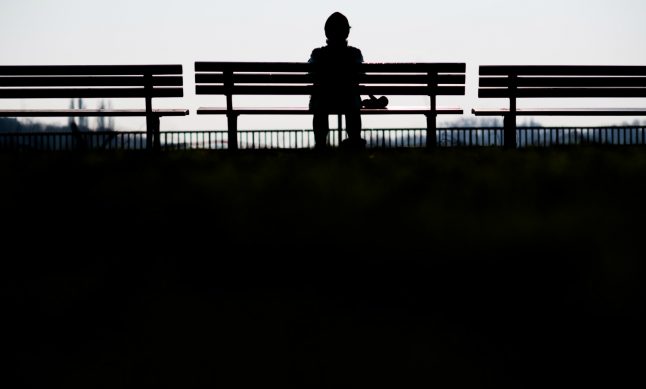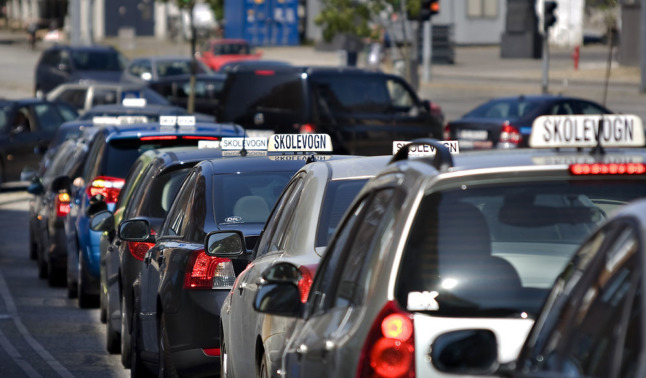As a therapist, Matthew Reynolds was used to treating patients with stress and anxiety issues in his native Australia.
But when he relocated to Frankfurt in 2016, and opened an English-language online practice there aimed at expats, he noticed a sharp increase in clients experiencing these issues.
SEE ALSO: 'Being honest helps': How expats have overcome loneliness in Germany
“In Australia about 50 percent of my clients had issues revolving around anxiety and stress, whereas the figure is about 90 percent in Germany,” said Reynolds.
His clients range from a Berlin start-up entrepreneur feeling lonely because he can’t find a partner, to couples who feel isolated from each other, with one partner seething in resentment for “following” the other to Germany.
Reynolds uses what’s known as Acceptance and Commitment Therapy (ACT), which contrasts from the common cognitive behavioural therapy (CBT). While CBT tries to stop people from having certain thoughts and feelings, ACT works on accepting certain thoughts rather than trying to block them out.
Workplace culture clashes
One of the largest catalysts among his clients is a “culture clash in the workplace,” as there is a different set of values, says Reynolds.
“They kind of internalize that and ask, ‘Why isn’t everyone else sharing my values?’ and that just leads them down the path of those anxious thoughts compounding on each other.”
For example, some of his clients – especially those coming from countries such as Australia, the US and the UK, “have values around humour and fun in the workplace” which were very important to them in the past. They then struggle working in German companies where this doesn’t seem to be such an important value.

Photo: DPA
When his clients feel they don’t fit in at work, the thought builds up until they assume that their job is at stake.
“ACT helps them diffuse the power of those thoughts and feelings so that they don’t get struck on that downward route of 'everyone is against me and I’m going to lose my job' and it becomes a catastrophe in their minds,” he says.
Couples issues
Another issue Reynolds has noticed is the strain that moving to Germany can put on a relationship.
Often one partner will follow the other to Germany on account of a job, “and that becomes part of the blame. One partner starts to believe that they’ve been brought [to Germany] against their will.”
This thought is only magnified, he says, when the “following partner” feels cut off from friends and family back home.
Reynolds often encourages the partner who “followed” the other to look at their values. They stop feeling like a victim mentality and realize it was their own ideas – such as a sense of adventure and drive to explore – which brought them to Germany in the first place.
Loneliness
Reynolds also notices more incidents of loneliness than he did back home in Australia. This holds especially true for expats who have left a country where they have a large family or friendship group and in Germany they experience feelings of isolation and loneliness from this group.
“They miss the connection, the general warmth of friends and family,” he says.
SEE ALSO: Two thirds of Germans think the country has a major loneliness problem
But there are many steps, mentally and physically, a person can take to alleviate them from these feelings, said Reynolds. For example, he encourages them to join social networks, stay connected back home through Skype and similar outlets or in general working on making new friends.
But Reynolds also helps clients accept that their new life in Germany simply can’t be like the one they knew back home. Embracing the current life involves re-framing their thinking.
“We find that if clients move from a ‘why me?’ or 'this is unfair' type of thinking to a more mindful acceptance of their environment that they are not prone to being controlled by anxious thoughts or feelings and can then take steps to make new connections in Germany.
Whether with workplace stress or loneliness, many people take on an “It’s all going to end in disaster” mentality, especially when separated from their built-in support group of friends, family or just their comfort zone that they knew back home, he says.
“It’s very much self-compassion and being kind to yourself, and diffusing the power of negative thoughts when they arise,” he says.



 Please whitelist us to continue reading.
Please whitelist us to continue reading.
Member comments